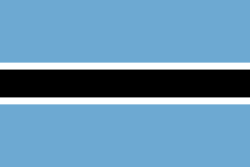| Date | Name | Remarks |
|---|
| 14 February | Valentine's Day | St. Valentine's Day, or simply Valentine's Day is named after one or more early Christian martyrs named Saint Valentine, and was established by Pope Gelasius I in 496 AD. Modern traditional celebration of love and romance, including the exchange of cards, candy, flowers, and other gifts. |
| February or March, date varies | Ash Wednesday | Closes with Ash Wednesday (40 days before Easter, not counting Sundays), which starts the penitential season of Lent in the Western Christian calendar. |
| Sunday before Easter | Palm Sunday | Celebration to commemorate the entry of Jesus into Jerusalem. |
| The Friday before (Eastern) Easter | Good Friday | Friday of Holy Week, when Western Christians commemorate the crucifixion and death of Jesus. Federal banks and post offices that are located in buildings that close for Good Friday and Easter will also be closed. Many public and private schools, colleges, universities and private-sector businesses; and the Botswana Stock Exchange and financial markets are closed on Good Friday. |
| Sunday following the Paschal Full Moon, date varies from 22 March to 25 April, inclusive (see Computus), | Easter | Celebration of the resurrection of Jesus in most Western Christian churches. Many of the Batswana decorate hard-boiled eggs and give baskets of candy, fruit, toys and so on, especially to children; but gifts of age-appropriate Easter baskets for the elderly, the infirm and the needy are increasingly popular. Not a federal holiday due to the fact that it always falls on a Sunday, which is a non-working day for federal and state employees. Many companies that are normally open on Sunday close for Easter. |
| 31 October | Halloween | Originally the end of the Celtic harvest season, it now celebrates the Eve of All Saints' Day. Decorations include jack o'lanterns. Costume parties and candy such as candy corn are also part of the holiday. Kids go "trick-or-treating" to neighbors who give them candy. |
| 24 December | Christmas Eve | Day before Christmas. Virtually every business closes early, though a few remain open 24 hours. |
| 31 December | New Year's Eve | Day before New Year. Virtually every business closes early, though a few remain open 24 hours. |

